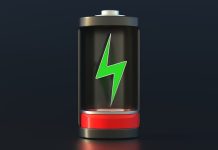
In a big leap for solar energy, scientists have made a solar cell that’s not only really efficient but also holds up well over time.
This new type of solar cell was created by Prof. Ge Ziyi and his team at the Ningbo Institute of Materials Technology and Engineering, part of the Chinese Academy of Sciences.
They’ve managed to reach an impressive efficiency level of 19.70% in turning sunlight into electricity, setting a new record for this kind of solar cell.
Solar cells, especially the organic kind, are super interesting for lots of reasons.
They’re lightweight, can bend, and are partly see-through, which makes them pretty handy for all sorts of gadgets and even buildings.
However, making these cells efficient at converting sunlight while also ensuring they last a long time has been tricky.
The secret to the team’s success lies in the use of two special molecules they designed. These molecules are used in the solar cells to help transport positive charges (or “holes”) better than the materials traditionally used.
This is a big deal because the usual materials, while good at their job, tend to make the solar cells less stable over time, especially in the presence of water or air.
The new materials, named BrCz and BrBACz, help the solar cells do a better job at turning sunlight into electricity.
They also make the cells more durable and efficient.
In tests, one of the solar cells with BrBACz reached the record efficiency of 19.70%, with a strong ability to keep working well even after being left out in the air under continuous light for over 1,000 hours.
This level of efficiency and stability is pretty unprecedented.
What’s more, these new materials worked wonders across various types of solar cells, showing that they could be widely useful.
This breakthrough not only shines a light on how to make better solar cells but also hints at a brighter, more sustainable future powered by the sun.
With advancements like these, solar energy could become a bigger part of our lives, powering everything from gadgets to homes with clean, renewable energy.
The study was published in Angewandte Chemie International Edition.



